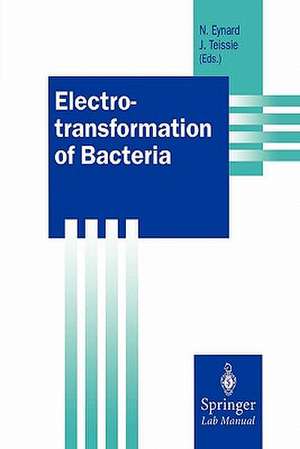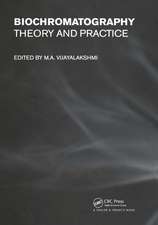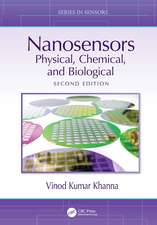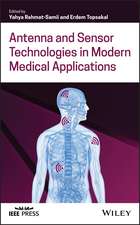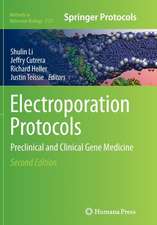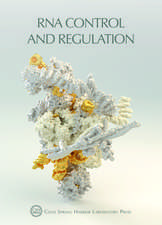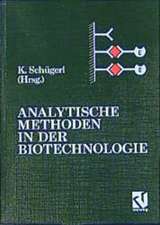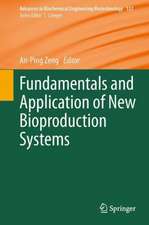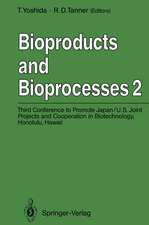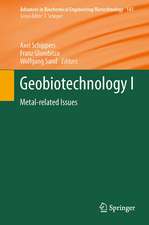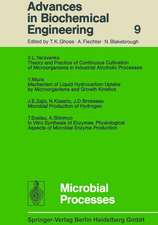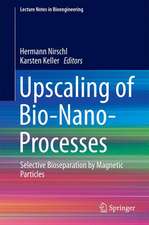Electrotransformation of Bacteria: Springer Lab Manuals
Editat de Natalie Eynard, Justin Teissieen Limba Engleză Paperback – 4 dec 2010
In the present manual, protocols for the transformation of about 40 strains of bacteria are described. Emphasis is placed on the individual critical procedural steps, since the practical details mainly depend on the bacterial strain under investigation. This presentation together with the theoretical introductionary chapters, allows the user to modify and adapt each protocol to his/her own experiments. Bacterial strains with relevance in the food industry, biotechnology, medical and veterinary fields, agroindustry and environmental sciences are covered.
| Toate formatele și edițiile | Preț | Express |
|---|---|---|
| Paperback (2) | 949.73 lei 6-8 săpt. | |
| Springer Berlin, Heidelberg – 28 iun 2000 | 949.73 lei 6-8 săpt. | |
| Springer Berlin, Heidelberg – 4 dec 2010 | 1380.63 lei 6-8 săpt. |
Din seria Springer Lab Manuals
-
 Preț: 385.84 lei
Preț: 385.84 lei -
 Preț: 362.59 lei
Preț: 362.59 lei - 18%
 Preț: 973.69 lei
Preț: 973.69 lei - 15%
 Preț: 695.85 lei
Preț: 695.85 lei - 18%
 Preț: 997.40 lei
Preț: 997.40 lei -
 Preț: 385.84 lei
Preț: 385.84 lei -
 Preț: 382.18 lei
Preț: 382.18 lei - 24%
 Preț: 1045.10 lei
Preț: 1045.10 lei - 15%
 Preț: 641.20 lei
Preț: 641.20 lei - 18%
 Preț: 939.33 lei
Preț: 939.33 lei -
 Preț: 381.43 lei
Preț: 381.43 lei - 15%
 Preț: 637.59 lei
Preț: 637.59 lei - 15%
 Preț: 639.25 lei
Preț: 639.25 lei -
 Preț: 376.68 lei
Preț: 376.68 lei - 18%
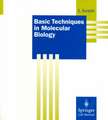 Preț: 1822.40 lei
Preț: 1822.40 lei - 18%
 Preț: 953.82 lei
Preț: 953.82 lei - 15%
 Preț: 645.14 lei
Preț: 645.14 lei - 15%
 Preț: 689.93 lei
Preț: 689.93 lei - 23%
 Preț: 821.59 lei
Preț: 821.59 lei - 19%
 Preț: 588.70 lei
Preț: 588.70 lei - 5%
 Preț: 727.44 lei
Preț: 727.44 lei - 18%
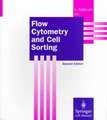 Preț: 1225.31 lei
Preț: 1225.31 lei - 15%
 Preț: 657.39 lei
Preț: 657.39 lei - 18%
 Preț: 949.73 lei
Preț: 949.73 lei -
 Preț: 386.99 lei
Preț: 386.99 lei - 15%
 Preț: 657.25 lei
Preț: 657.25 lei - 19%
 Preț: 555.63 lei
Preț: 555.63 lei -
 Preț: 380.63 lei
Preț: 380.63 lei - 18%
 Preț: 1226.11 lei
Preț: 1226.11 lei - 15%
 Preț: 649.22 lei
Preț: 649.22 lei - 15%
 Preț: 632.55 lei
Preț: 632.55 lei - 19%
 Preț: 584.77 lei
Preț: 584.77 lei - 15%
 Preț: 639.41 lei
Preț: 639.41 lei - 15%
 Preț: 644.82 lei
Preț: 644.82 lei -
 Preț: 390.25 lei
Preț: 390.25 lei - 18%
 Preț: 781.31 lei
Preț: 781.31 lei - 15%
 Preț: 644.63 lei
Preț: 644.63 lei -
 Preț: 382.36 lei
Preț: 382.36 lei -
 Preț: 363.12 lei
Preț: 363.12 lei - 18%
 Preț: 961.23 lei
Preț: 961.23 lei -
 Preț: 416.29 lei
Preț: 416.29 lei - 18%
 Preț: 783.35 lei
Preț: 783.35 lei - 18%
 Preț: 791.88 lei
Preț: 791.88 lei - 15%
 Preț: 675.22 lei
Preț: 675.22 lei - 23%
 Preț: 1311.58 lei
Preț: 1311.58 lei -
 Preț: 381.43 lei
Preț: 381.43 lei
Preț: 1380.63 lei
Preț vechi: 1683.71 lei
-18% Nou
Puncte Express: 2071
Preț estimativ în valută:
264.19€ • 288.12$ • 222.76£
264.19€ • 288.12$ • 222.76£
Carte tipărită la comandă
Livrare economică 24 aprilie-08 mai
Preluare comenzi: 021 569.72.76
Specificații
ISBN-13: 9783642085932
ISBN-10: 3642085938
Pagini: 308
Ilustrații: XI, 292 p. 8 illus.
Dimensiuni: 155 x 235 x 16 mm
Greutate: 0.43 kg
Ediția:Softcover reprint of 1st ed. 2000
Editura: Springer Berlin, Heidelberg
Colecția Springer
Seria Springer Lab Manuals
Locul publicării:Berlin, Heidelberg, Germany
ISBN-10: 3642085938
Pagini: 308
Ilustrații: XI, 292 p. 8 illus.
Dimensiuni: 155 x 235 x 16 mm
Greutate: 0.43 kg
Ediția:Softcover reprint of 1st ed. 2000
Editura: Springer Berlin, Heidelberg
Colecția Springer
Seria Springer Lab Manuals
Locul publicării:Berlin, Heidelberg, Germany
Public țintă
Professional/practitionerCuprins
I Introduction.- 1 General Principles of Bacteria Electrotransformation: Key Steps.- 2 A Critical Introduction to the Technology of Bacterial Electrotransformation.- 3 Electrotransformation of Escherichia coli.- 4 Transformation of Bacillus subtilis PB1424 by Electroporation.- II Biotechnology and Food Technology.- 5 Clostridium in Biotechnology and Food Technology.- 6 Electrotransformation of Lactococcus lactis.- 7 Electrotransformation of Salmonella typhimurium.- 8 Electroporation of bifidobacteria.- 9 Electrotransformation of Listeria species.- 10 Transformation of Methylobacterium extorquens with a Broad-Host-Range Plasmid by Electroporation.- 11 Electrotransformation of Acidophilic, Heterotrophic, Gramnegative Bacteria.- 12 Acetobacter xylinum — Biotechnology and Food Technology.- 13 Electrotransformation of Sphingomonas pancimobilis.- 14 Bacillus amyloliquefaciens — Production Host for Industrial Enzymes.- III Medical and Veterinary Applications.- 15 Electrotransformation of Yersinia ruckeri.- 16 Electrotransformation of Enterococci.- 17 Prevotella bryantii, P. ruminicola and Bacteroides Strains.- 18 Electrotransformation of Bordetella.- 19 Transformation of Campylobacter jejuni.- 20 Slow-Growing Mycobacteria.- 21 Electrotransformation of Photobacterium damselae subsp. piscicida.- 22 Actinobacillus actinomycetemcomitans: Electrotransformation of a Periodontopathogen.- 23 Francisella in Medical and Veterinary Applications.- 24 Electroporation of the Anaerobic Rumen Bacteria Ruminococcus albus.- 25 Electroporation of Legionella Species.- 26 Electrotransformation of Streptococcus pneumoniae.- IV Plants.- 27 Clavibacter michiganensis — Transformation of a Phytopathogenic Gram-Positive Bacterium.- 28 Electrotransformation of Agrobacterium turnefaciens and A.rhizogenes.- V Environmental Bacteria.- 29 Transformation of the Filamentous Cyanobacterium Fremyella diplosiphon.- 30 Electroporation of Bacillus thuringiensis and Bacillus cereus.- 31 Introduction of Plasmids into Azospirillum brasilense by Electroporation.- 32 Cyanobacteria: Electroporation and Electroextraction.- 33 Electrotransformation of Plasmids into Freshwater and Marine Caulobacters.- Appendices.- Appendix A Plasmid Preparation.- Appendix B Suppliers.
Textul de pe ultima copertă
Creating bacteria with modified genetic properties allows the specific investigation of these microorganisms. Electrotransformation is a highly efficient and easy to apply technique to introduced genetic material into bacterial cells, with the use of a strong electric field. In the present manual, protocols for the transformation of about 40 strains of bacteria are described. Emphasis is given on the individual critical procedural steps, since the practical details depend on the bacterial strain under investigation. This presentation together with the theoretical introductionary chapters, allows the user to modify and adapt each protocol to his/her own experiments. Bacterial strains with relevance in the food industry and biotechnology, in medical and veterinary fields, agroindustry and environmental sciences are covered.
Caracteristici
Protocols on the transformation of about 40 bacterial strains of biotechnolgical or medical relevance Easy-to-follow step-by-step instructions for immediate use at the lab bench Each experiment shows the uniform clear structure and presentation of a Springer Lab Manual
